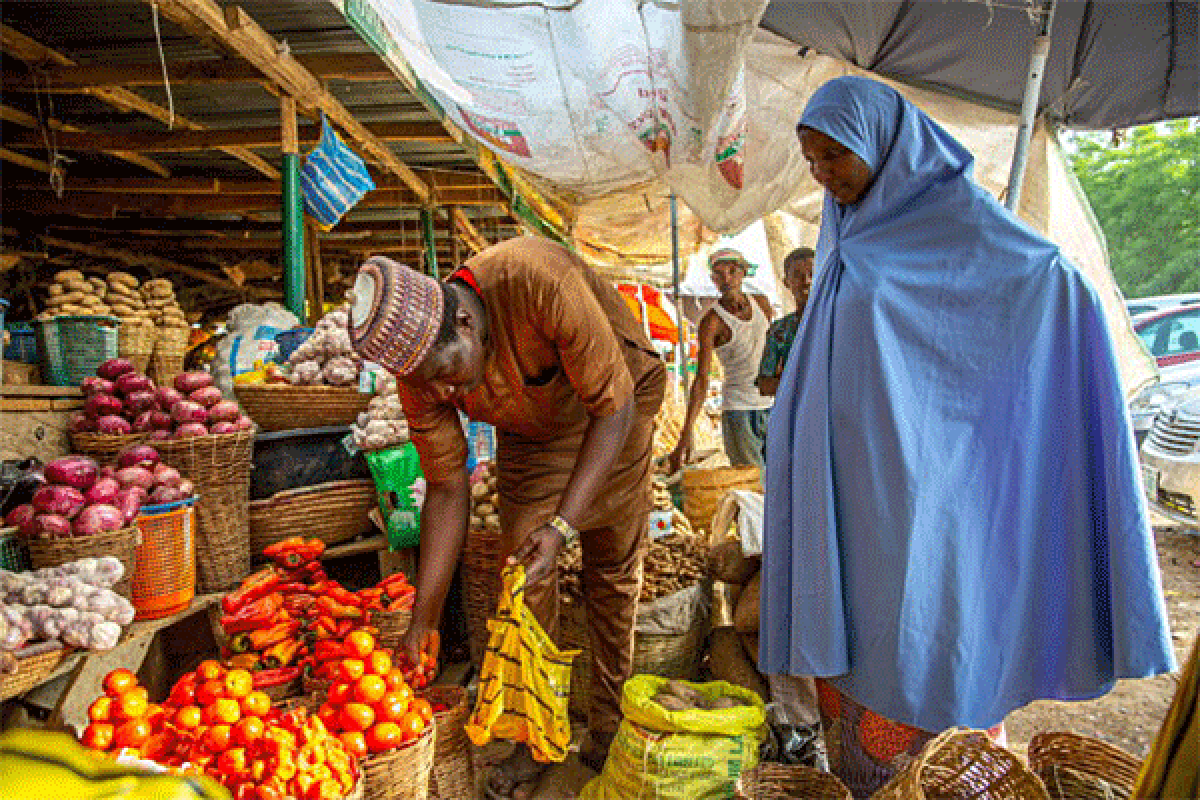Perishable food traders in Nyanya, Karu, and Mararaba markets in Abuja, Nigeria, are among the groups most affected by the scarcity of Naira notes.
The CBN had previously stated that the old N200, N500 and N1000 Naira notes are no longer legal tender, and only the new notes are valid for transactions. However, during President Muhammadu Buhari’s February 16 address to the nation, he announced the validity of the N200 note till April 10.
But, according to a recent survey conducted by Nairametrics, the lack of available cash is leading to reduced business transactions for these traders, as well as low customer turnout.
What the traders are saying
Ismail Ibrahim, a trader who sells tomatoes at Mararaba market, stated that the scarcity of cash means he often goes a whole day without making sales and when his tomato stock turns out halfway rotten the next day, he sells them off to low-income earners at crashed prices resulting in significant losses.
Madam Charity, a vegetable seller at Karu market, explained that any of her produce which turns out rotten after some time following low customer purchases is thrown out, and she just counts her losses. She also attributes the losses to her inability to make sales due to the scarcity of cash.
A Shutdown of POS Operator Points in the Market: On Wednesday, February 15, buyers who were at the Karu and Nyanya markets could not access point of sale (POS) outlets in the aforementioned areas. Those who were open did not have cash, thereby making it difficult for buyers to access the money needed to purchase perishable goods.
This had a significant effect on food traders who were at their wits’ end as to how to get out of this dilemma. Some of them had this to say:
Alhaji Nura Usman, who sells tomatoes and pepper at Nyanya market, reported very slow sales in the last week because many customers have no cash to pay for goods. He also said he could not accept payment through transfers as he needed cash desperately for his own needs.
Speaking to Nairametrics, a POS operator who refused to open her POS outlet said that the authorities were after POS operators who had been accused of charging exorbitant fees for withdrawals.
According to her, many POS operators are now unable to get cash, making an already bad situation worse for everyone who came to the local markets to shop for food items. She expressed her fear of being picked up by officers of the law, which led her to keep her outlet locked.
What the CBN Governor said: The Central Bank Governor, Godwin Emefiele, recently announced that Point of Sale (POS) agents who charge above N200 for the CBN cash swap program will be arrested and jailed when caught. He also added that POS operators can come to the CBN to be compensated for any extra costs incurred in getting the new notes, rather than charging a higher fee on customers.
Rejection of Transfers: Many perishable food traders in the Karu, Mararaba, and Nyanya markets are rejecting payments made through transfers, even at the risk of having bad produce if purchases do not happen. According to Madam Blessing, a seller trading in fresh vegetables, she can only sell her goods using cash as a means of payment because she has no bank account.
She said she always pays for her produce in cash, accepts cash for payment, and uses cash daily to meet her family’s needs. She reasoned that her net worth is not as high as those who own bank accounts, and she refuses to see a need for one.
Transporting perishables from villages to semi-urban areas
Edward Odeh, a native of Benue state, told Nairametrics that his business involves moving perishable goods from villages to semi-urban areas in Abuja.
Speaking on payment methods in current times, he said that online transfers were the rave of the moment for some transactions between banked farmers and third-party businessmen who actively move perishable goods from villages to semi-urban areas of Abuja.
However, he noted that some unbanked farmers have difficulty receiving payments because they have no bank accounts.
Impact of unbanked farmers in communities in Benue
According to Odeh, some payments are delayed or transferred to the accounts of anyone with close ties to the farmers. He also highlighted the fact that old Naira notes are no longer accepted by people who are active in the perishable foods business because of the CBN directive.
Meanwhile, online transfers are not so common in some villages Odeh has done business in. He said:
- “People are not just used to online transfers like in the major cities of Abuja and Lagos. In farming communities, online transfers are still foreign to a number of people. Although farmers in these communities are not really pressed for cash like city dwellers who always need to buy food and pay utilities. They get their food directly from the farm. For this reason, payments can be delayed.”
Nigeria, a country dependent on cash: Unlike their village counterparts, perishable food traders in Abuja are pressed for cash to meet their varied needs. A Development Economist, Dr Basil Odilim Enwegbara said during an interview on Arise TV on Wednesday night, that Nigeria’s economy is mostly informal and runs on cash, not online transfers. So, the earlier the issue is resolved, the faster perishable food trading can resume fully, and traders can stop recording losses.
What can be done to address the situation
- Consider barter trade: Perishable food traders can explore the option of bartering their goods with other items they need, rather than receiving cash payments. For example, a trader may exchange vegetables for household items, fuel, or other commodities they need.
- Partner with financial institutions: Traders can partner with financial institutions to facilitate the exchange of cash for goods. Banks or microfinance institutions can provide traders with small loans or overdraft facilities to help them purchase products, which they can repay when they sell their goods.
- Seek government assistance: Traders can seek assistance from the government, either through direct financial support or by advocating for policies that can help alleviate the Naira scarcity. They can also join or form associations that represent their interests and engage with policymakers to address their concerns.
- Leverage social media: Perishable food traders can use social media platforms to reach a wider customer base, which can help them sell their goods more quickly. They can create social media accounts where they post pictures of their products and prices, and customers can place orders online and pay electronically.
However, the use of social media may not be familiar to many perishable food traders, and more efforts are needed to educate them on how to leverage these tools effectively.
























